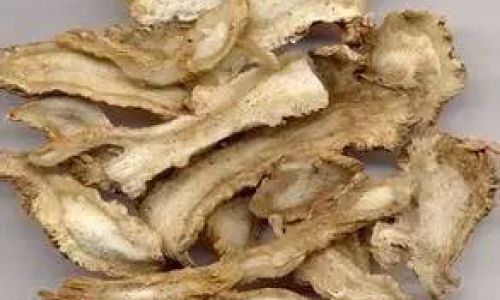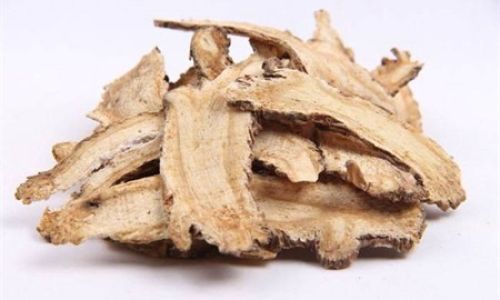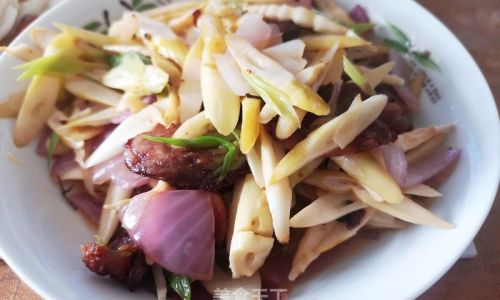Introduction
Angelica sinensis, commonly known as Dong Quai or Chinese angelica, is a perennial herb native to China, Japan, and Korea. It has been used in traditional Chinese medicine (TCM) for centuries due to its numerous health benefits, which range from alleviating menstrual discomfort to promoting blood circulation. This aromatic root is rich in vitamins, minerals, and essential oils that contribute to its medicinal properties. However, consuming Angelica sinensis correctly is crucial to harness its full potential while avoiding potential side effects. This comprehensive guide will explore various methods of consuming Angelica sinensis, its nutritional benefits, potential side effects, and tips for safe consumption.

Understanding Angelica Sinensis
Before diving into how to consume Angelica sinensis, it’s essential to understand what it is and its traditional uses. Angelica sinensis belongs to the Apiaceae family and is characterized by its fragrant, brownish-red roots. In TCM, it is considered a “female tonic” due to its ability to regulate menstrual cycles, alleviate menstrual pain, and improve fertility. It is also believed to nourish the blood, relieve constipation, and promote overall health.
The active compounds in Angelica sinensis include ferulic acid, ligustilide, and vitamins B12 and E. These compounds work synergistically to provide a range of health benefits. For instance, ferulic acid is a powerful antioxidant that helps protect cells from damage caused by free radicals. Ligustilide, on the other hand, has anti-inflammatory and analgesic properties, making it effective in pain relief.
Methods of Consuming Angelica Sinensis
There are several ways to consume Angelica sinensis, each offering unique benefits and flavors. Here are some popular methods:
Decoction (Boiling in Water)
One of the most traditional ways to consume Angelica sinensis is by preparing a decoction. This involves boiling the dried roots in water to extract its active compounds.
Steps:
- Prepare 9-15 grams of dried Angelica sinensis roots.
- Rinse the roots under cold water to remove any impurities.
- Place the roots in a pot and add 8 cups of water.
- Bring the water to a boil, then reduce the heat and simmer for about 30-45 minutes.
- Strain the decoction and discard the roots.
- Drink the decoction warm, preferably on an empty stomach.
Tips:
- For enhanced flavor and benefits, you can combine Angelica sinensis with other herbs like ginger, red dates, or goji berries.
- Store the decoction in a sealed container in the refrigerator for up to 3 days.
Tea
Making Angelica sinensis tea is a convenient and easy way to consume this herb. You can use dried roots, powder, or tea bags.
Steps:
- If using dried roots, prepare 3-5 grams and rinse them under cold water.
- Place the roots in a teapot or infuser.
- Pour hot water over the roots and let it steep for 5-10 minutes.
- Strain the tea and enjoy it warm or at room temperature.
Tips:
- For a stronger flavor and increased benefits, you can steep the roots for a longer period.
- Add honey, lemon, or other natural sweeteners to enhance the taste.
Powder
Angelica sinensis powder is a concentrated form of the herb and can be easily incorporated into various foods and drinks.
Steps:
- Measure 1-2 teaspoons of Angelica sinensis powder.
- Mix the powder with hot water, juice, or smoothies.
- Stir well until the powder is fully dissolved.
Tips:
- You can also sprinkle the powder over yogurt, oatmeal, or cereal.
- Start with a smaller dose and gradually increase it to avoid potential side effects.
Capsules
For those who prefer a more convenient and measured dosage, Angelica sinensis capsules are an excellent option.
Steps:
- Follow the manufacturer’s instructions for the recommended dosage.
- Take the capsules with water, preferably on an empty stomach.
Tips:
- Ensure that the capsules are made from high-quality, organic Angelica sinensis.
- Consult your healthcare provider before starting any supplement regimen.
Soup and Stew
Incorporating Angelica sinensis into soups and stews is a delicious way to enjoy its benefits. This method is particularly popular in Asian cuisine.
Steps:
- Prepare a soup base using chicken, pork, or vegetable broth.
- Add 15-30 grams of dried Angelica sinensis roots along with other soup ingredients like ginger, garlic, and vegetables.
- Simmer the soup for at least 1-2 hours to allow the flavors and nutrients to meld together.
- Serve the soup hot and enjoy.
Tips:
- Adjust the amount of Angelica sinensis based on your taste preference and health goals.
- Pair it with other blood-nourishing herbs like reishi mushrooms or goji berries for enhanced benefits.
Tincture
Angelica sinensis tincture is a concentrated liquid extract that can be taken orally. It is made by soaking the roots in alcohol for a period of time to extract its active compounds.
Steps:

- Purchase a high-quality Angelica sinensis tincture from a reputable source.
- Follow the manufacturer’s instructions for the recommended dosage.
- Take the tincture by mouth, preferably on an empty stomach, or mix it with water or juice.
Tips:
- Store the tincture in a cool, dark place away from direct sunlight.
- Shake the bottle before use to ensure a uniform mixture.
Nutritional Benefits of Angelica Sinensis
Angelica sinensis offers a wide range of nutritional benefits that contribute to overall health and well-being. Here are some of its key benefits:
Blood Nourishment
Angelica sinensis is renowned for its ability to nourish the blood. It is often used to treat anemia, menstrual disorders, and postpartum weakness. By increasing the production of red blood cells and improving blood circulation, it helps to alleviate fatigue, dizziness, and pale skin.
Pain Relief
The anti-inflammatory and analgesic properties of Angelica sinensis make it an effective natural remedy for pain relief. It is commonly used to treat menstrual cramps, headaches, and arthritis pain. By reducing inflammation and promoting relaxation, it helps to alleviate discomfort and improve quality of life.
Digestive Health
Angelica sinensis has a gentle laxative effect that helps to relieve constipation and improve digestive health. It stimulates the digestive system, promoting regular bowel movements and reducing bloating and discomfort.
Immune Support
The antioxidants in Angelica sinensis help to boost the immune system, protecting the body from infections and diseases. By neutralizing free radicals and reducing oxidative stress, it supports the function of immune cells and promotes overall health.
Hormonal Balance
Angelica sinensis is known to regulate hormonal balance, particularly in women. It helps to alleviate symptoms of PMS, menopause, and infertility by balancing estrogen levels and promoting healthy reproductive function.
Potential Side Effects and Precautions
While Angelica sinensis offers numerous health benefits, it is important to be aware of its potential side effects and precautions. Here are some key points to consider:
Allergic Reactions
Some individuals may be allergic to Angelica sinensis. If you experience symptoms such as skin rash, itching, or swelling after consuming the herb, discontinue use immediately and seek medical attention.
Hormonal Interference
Angelica sinensis may interfere with hormonal medications, such as birth control pills, hormone replacement therapy, and blood thinners. Consult your healthcare provider before consuming the herb if you are taking any hormonal medications.
Pregnancy and Lactation
Angelica sinensis is not recommended for pregnant or lactating women due to its potential to stimulate uterine contractions and affect milk production. Avoid consuming the herb during these times to ensure the safety of you and your baby.
Bleeding Disorders
Angelica sinensis may increase the risk of bleeding in individuals with bleeding disorders or those taking blood-thinning medications. If you have a bleeding disorder or are taking blood thinners, consult your healthcare provider before consuming the herb.
Drug Interactions
Angelica sinensis may interact with certain medications, such as anticoagulants, antiplatelet agents, and diuretics. Consult your healthcare provider before consuming the herb if you are taking any medications to avoid potential interactions.
Conclusion
Angelica sinensis is a powerful herbal remedy that offers numerous health benefits, including blood nourishment, pain relief, digestive health, immune support, and hormonal balance. However, consuming it correctly is crucial to harness its full potential while avoiding potential side effects. By following the methods outlined in this guide, you can safely and effectively incorporate Angelica sinensis into your diet and enjoy its numerous health benefits. Remember to consult your healthcare provider before starting any new herbal regimen, particularly if you have any pre-existing health conditions or are taking medications. With proper use, Angelica sinensis can be a valuable addition to your wellness routine.





0 comments